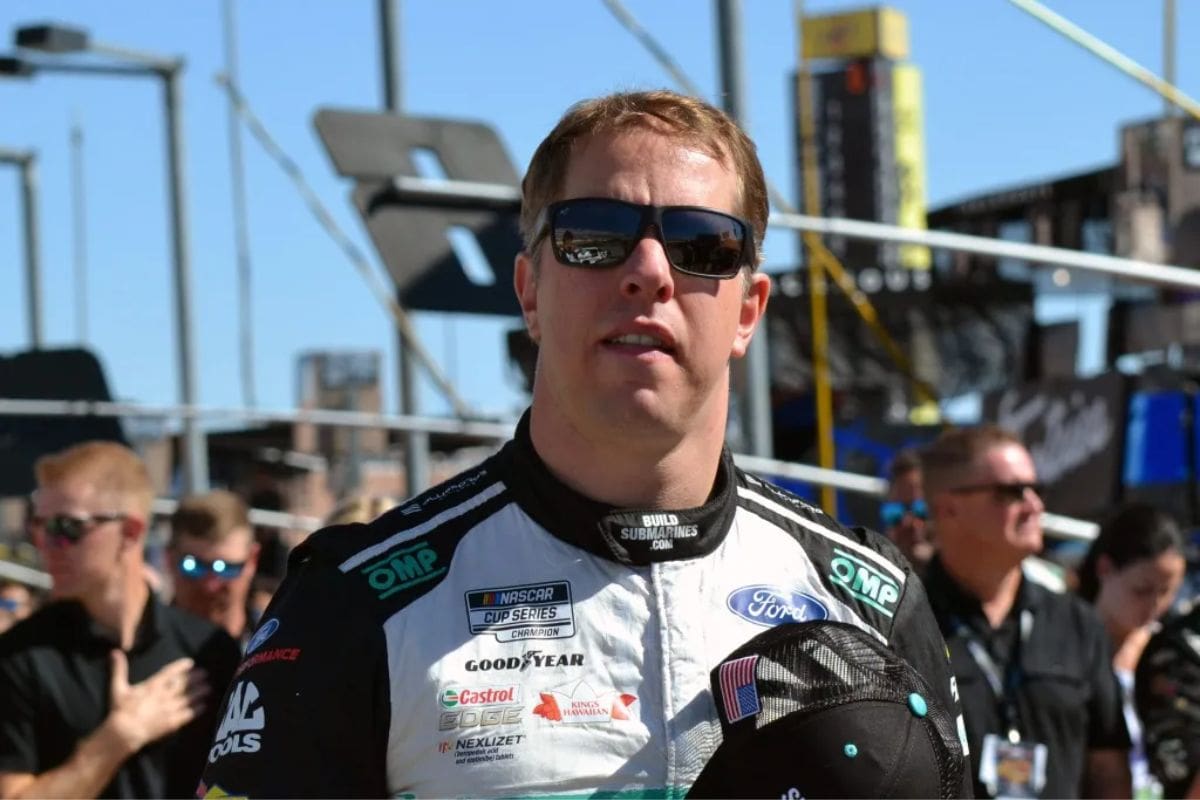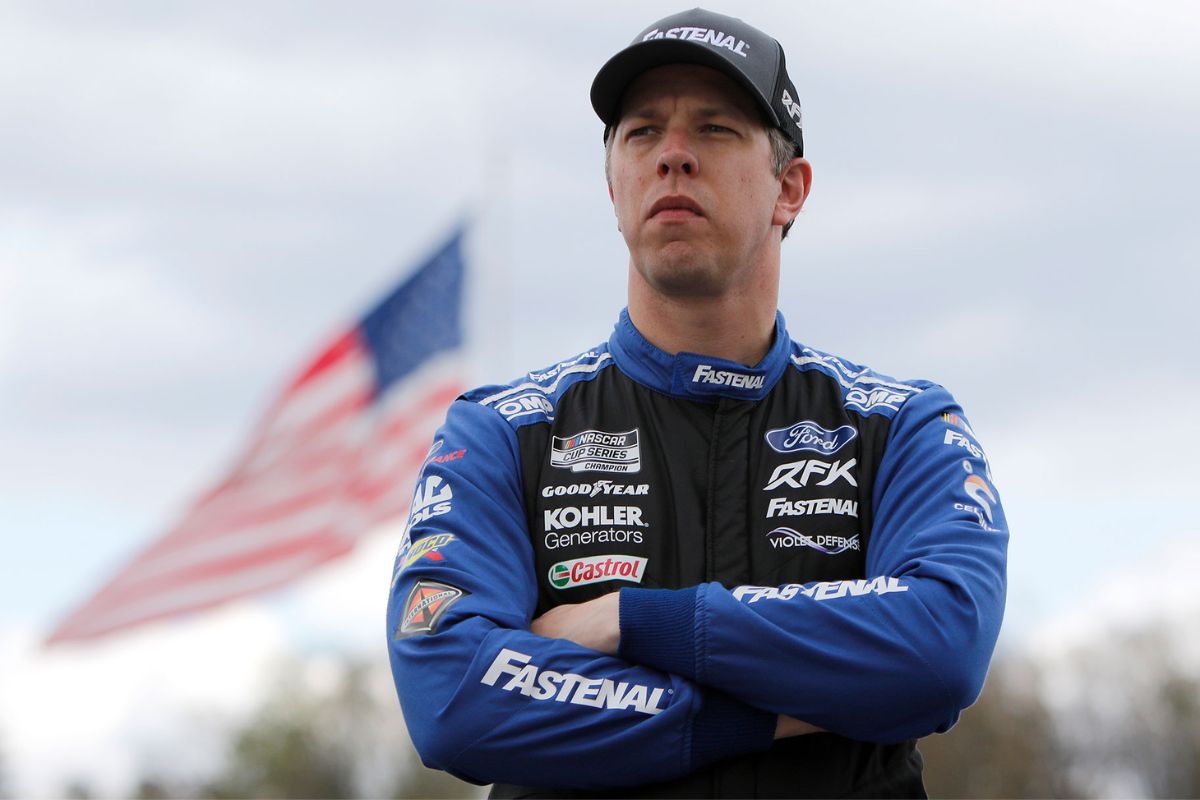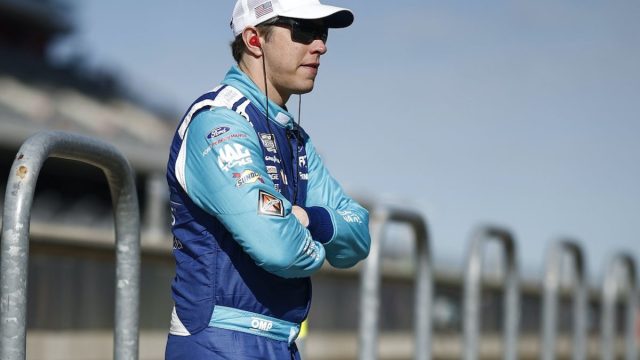Brad Keselowski Warns NASCAR: As NASCAR confronts charter negotiations, Brad Keselowski’s recent cautionary remarks illuminate the potential dangers of self-interests within the sport’s governance. The seasoned driver and co-owner of RFK Racing presents a compelling case for greater unity and collaborative effort among racing teams, stakeholders, and governing bodies. His dual roles provide him with unique insights into the weak interdependencies that sustain the competitive and financial health of NASCAR. Keselowski warns that without a shift toward mutual goals and shared benefits, NASCAR risks a fragmentation that could undermine its future stability and growth. As these negotiations continue, the question remains: Will Keselowski’s call for collective responsibility resonate deeply enough to build real change, or will the sport’s stakeholders retreat further into their corners?
Key Takeaways
- Brad Keselowski emphasizes the need for cooperation among NASCAR stakeholders to ensure the sport’s sustainability.
- Keselowski warns that selfishness in charter negotiations could harm NASCAR’s progress and stability.
- As a driver and co-owner, Keselowski advocates for a unified approach to address financial and competitive challenges.
- Selfish actions risk damaging relationships within NASCAR, affecting team stability and fan engagement.
- Keselowski calls for a cultural shift towards collective efforts in resolving ongoing charter negotiation issues.
Stalemate in Charter Negotiations
The ongoing charter negotiations in NASCAR have hit a wall, as teams seek a more favorable revenue distribution and charter rights, but at the restrictive terms of a proposed seven-year contract. This deadlock highlights the complex dynamics within the sport’s financial and operational framework.
Teams are advocating for a significant alteration in the revenue sharing model to better reflect their contributions to the sport’s success and sustainability. The crux of the matter lies in the distribution of television revenues and race winnings, which teams believe should be more equitably shared to promote the longevity and competitiveness of all participants.
Moreover, the permanence of charters is another critical aspect. Teams argue that long-term security would facilitate better planning and investment, thereby enhancing the quality of racing and the sport’s appeal to sponsors and fans alike. However, the proposed seven-year term for these charters is perceived as too lengthy, potentially locking teams into an unfavorable framework that could hinder their agility and adaptability in a rapidly evolving sports entertainment landscape.

Lack of Common Ground
Amidst the ongoing charter negotiations stalemate, NASCAR faces a critical lack of common ground among its stakeholders, as pointed out by veteran driver Brad Keselowski. This deadlock is not merely a reflection of differing opinions but shows a deeper discord that threatens the collective progress and sustainability of the sport.
The core of this issue lies in the varied interests of the stakeholders, which include team owners, sponsors, and organizational bodies. Each faction has its own vision for NASCAR’s future, driven by distinct business models and strategic priorities. This divergence is further complicated by the high stakes involved, including financial implications and the competitive balance within the sport.
The urgency to find common ground is paramount. Without it, the risk runs high of a fragmented sport, where the lack of cohesion could diminish NASCAR’s appeal to current and potential fans and sponsors, thereby impacting its overall marketability and growth prospects. The ongoing situation calls for a strategic realignment where stakeholders prioritize the sport’s collective needs over individual gains.
Keselowski’s Perspective on the Situation
Brad Keselowski emphasizes the vital need for collaboration among NASCAR’s stakeholders to drive the sport’s growth and avoid deadlock. As a seasoned driver and now co-owner of RFK Racing, Keselowski brings a unique dual perspective to the discussion on NASCAR’s future. He understands intimately the dynamics at play, both on the track and in the boardroom.
“I think we’re in a little bit of a holding pattern… We’ve got to get the sport where it’s growing, we have to collectively. It’s not one stakeholder; it’s all the stakeholders improve our behaviors if we’re going to grow the sport. And that’s not pointing fingers at one person; it’s really all the stakeholders.”-(brad)
Keselowski rejects the notion that teams might consider exiting NASCAR due to current challenges. Instead, he views these challenges as opportunities that should be utilized to build growth. This perspective is critical at a time when many sports are dynamically evolving to capture new audiences and adapt to changing market conditions.
“On the flip side, this is a really key moment for NASCAR and for the sport to install the incentives that model… All of the people it’s not just me we have to decide whether we’re going to seize that opportunity or not. Or whether we’re going to get squabbling over pieces of the pie.”-(brad)
This call for unity is not just about avoiding negative outcomes; it’s about proactively crafting a future that benefits all stakeholders. The emphasis on collaboration over competition is strategic, aiming to boost the overall health of the sport rather than just the success of individual entities.

NASCAR’s Efforts to Settle the Deal
How is NASCAR addressing its controversial proposal to modify ownership rules in the wake of resistance from racing teams? The organization is strategically moving through a complex landscape of interests and concerns by proposing adjustments to the existing framework. This includes reconsidering its direct involvement in owning and operating race teams, a point of contention that has stirred significant debate within the industry.
NASCAR is attempting to strike a delicate balance. On one hand, they aim to inject more dynamism and financial stability into the sport, potentially attracting new investors and diversifying the ownership landscape. On the other hand, they face opposition from established teams worried about preserving the sport’s competitive integrity and traditional governance structures.
In response, NASCAR is engaging in intensive consultations with team owners, seeking to address these concerns by amending contentious clauses. Their approach is one of dialog and compromise, aiming to forge a consensus that respects the perspectives of all stakeholders involved. This includes potentially revising the scope of NASCAR’s involvement in team operations, ensuring that such measures are transparent and equitable.
The efforts are a validation of NASCAR’s commitment to maintaining a sustainable and vibrant racing ecosystem. By carefully readjusting the balance of power and responsibilities, NASCAR hopes to secure a prosperous future for the sport while respecting the foundational elements that have made it a beloved spectacle worldwide.
The Future of Charter Negotiations
As charter negotiations progress, NASCAR’s strategic importance becomes crucial in shaping a compromise that could redefine team collaborations and ownership dynamics within the sport. The ongoing charter discussions are important, as they determine the operational framework and financial distribution among the teams and the governing body. NASCAR’s influence in these negotiations is pronounced, given its role as both regulator and commercial hub.
The crux of these negotiations lies in how long the teams can hold firm on their collective demands versus NASCAR’s proposals. The teams seek terms that safeguard financial viability and competitive equity, while NASCAR aims to enrich the sport’s overall appeal and sustainability. This delicate balance requires a subtle approach to negotiation, highlighting NASCAR’s need to deploy a strategy that not only addresses its objectives but also aligns with the teams’ long-term interests.
Compromise seems inevitable, but the shape it will take is still unclear. The outcome of these negotiations will likely set precedents for future dealings and could either fortify NASCAR’s ecosystem or lead to tensions if perceived as disproportionately favoring one side.
As the negotiations enter critical phases, all stakeholders are reminded that the strength of NASCAR lies in its ability to foster a competitive yet cooperative environment where all parties can thrive. The resolution of this negotiation will, thus, be a proof of NASCAR’s leadership in steering the sport towards a sustainable and exciting future.

News in Brief: Brad Keselowski Warns NASCAR
The ongoing stalemate in NASCAR’s charter negotiations highlights the critical need for collaborative efforts among stakeholders.
Keselowski’s insights highlight the potential for detrimental effects of individualistic pursuits on the sport’s sustainability and growth.
It is imperative that all parties involved prioritize a collective approach to overcome the current impasse.
Such unity is crucial not only for resolving the present disagreements but also for fostering a competitive and progressive environment in NASCAR’s future.
Also Read: Brad Keselowski and Team Finally Crack the Code: Startling Insights
